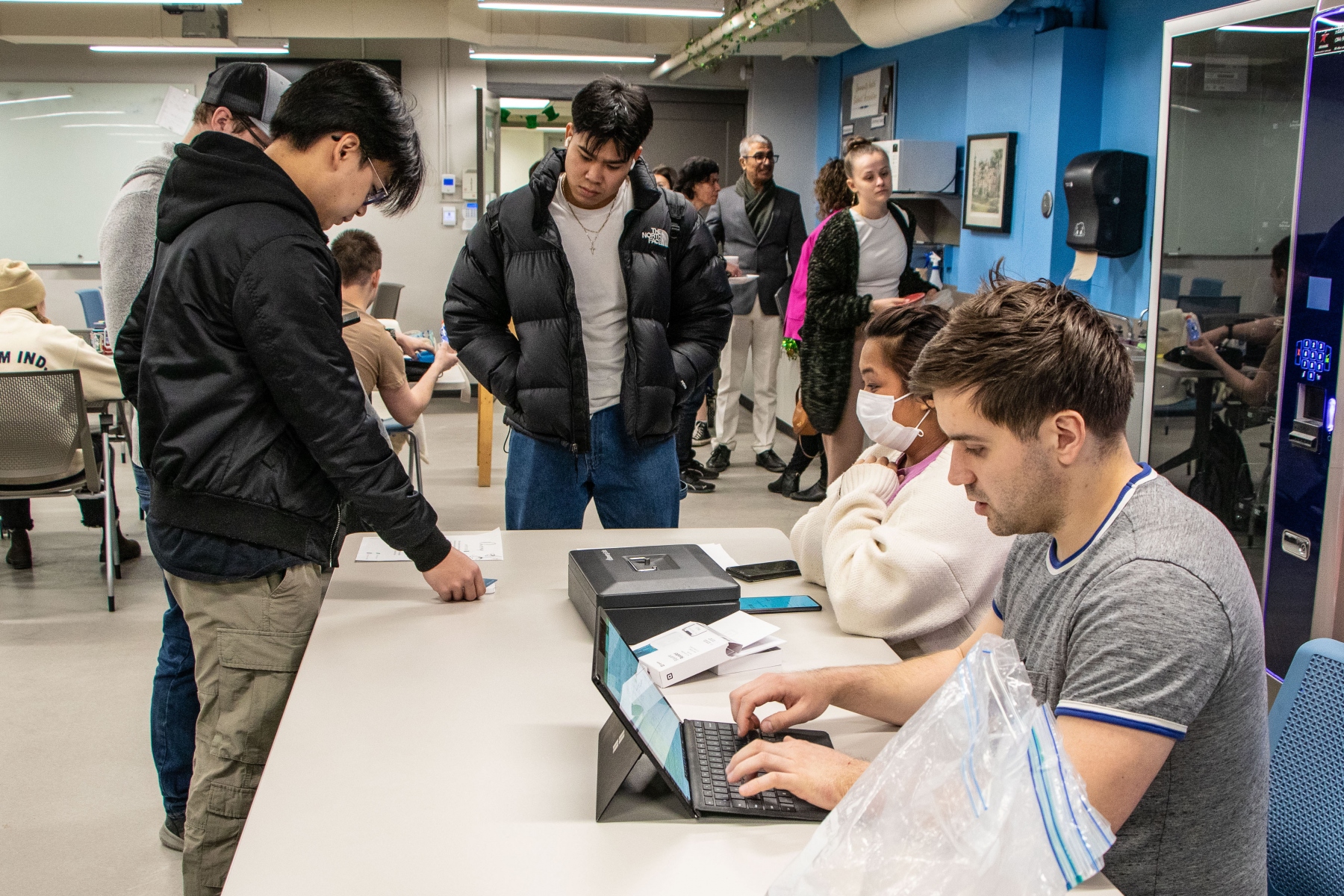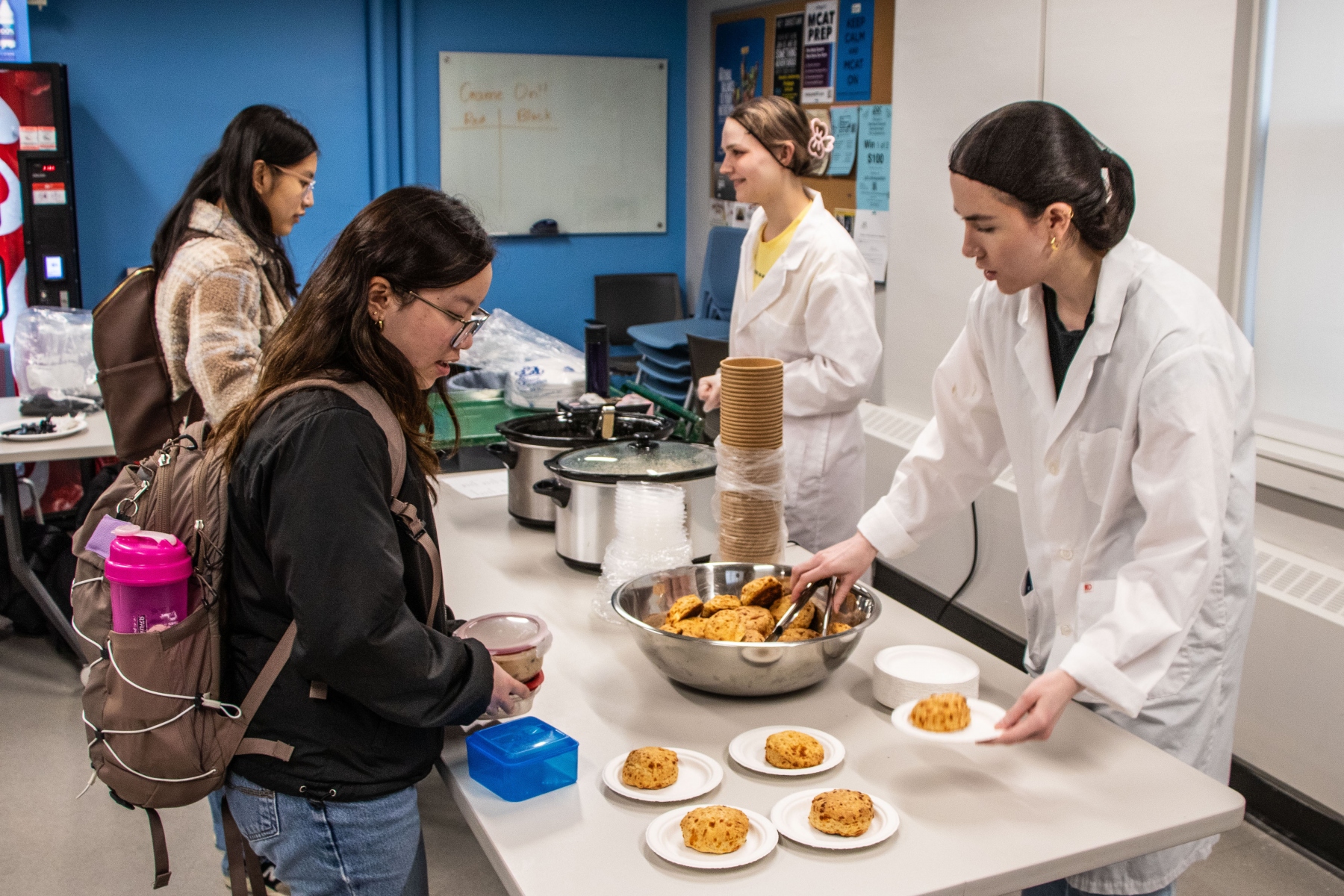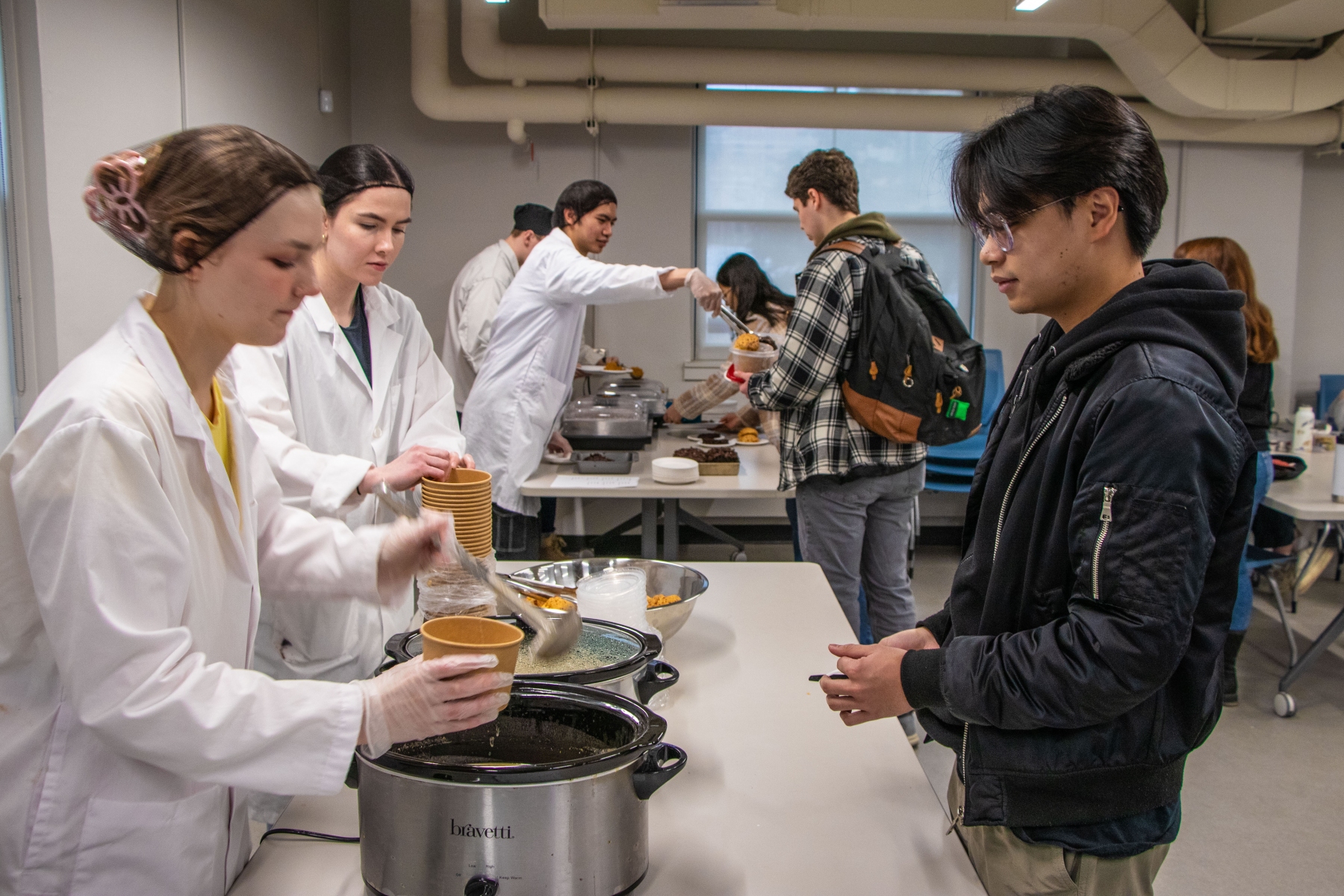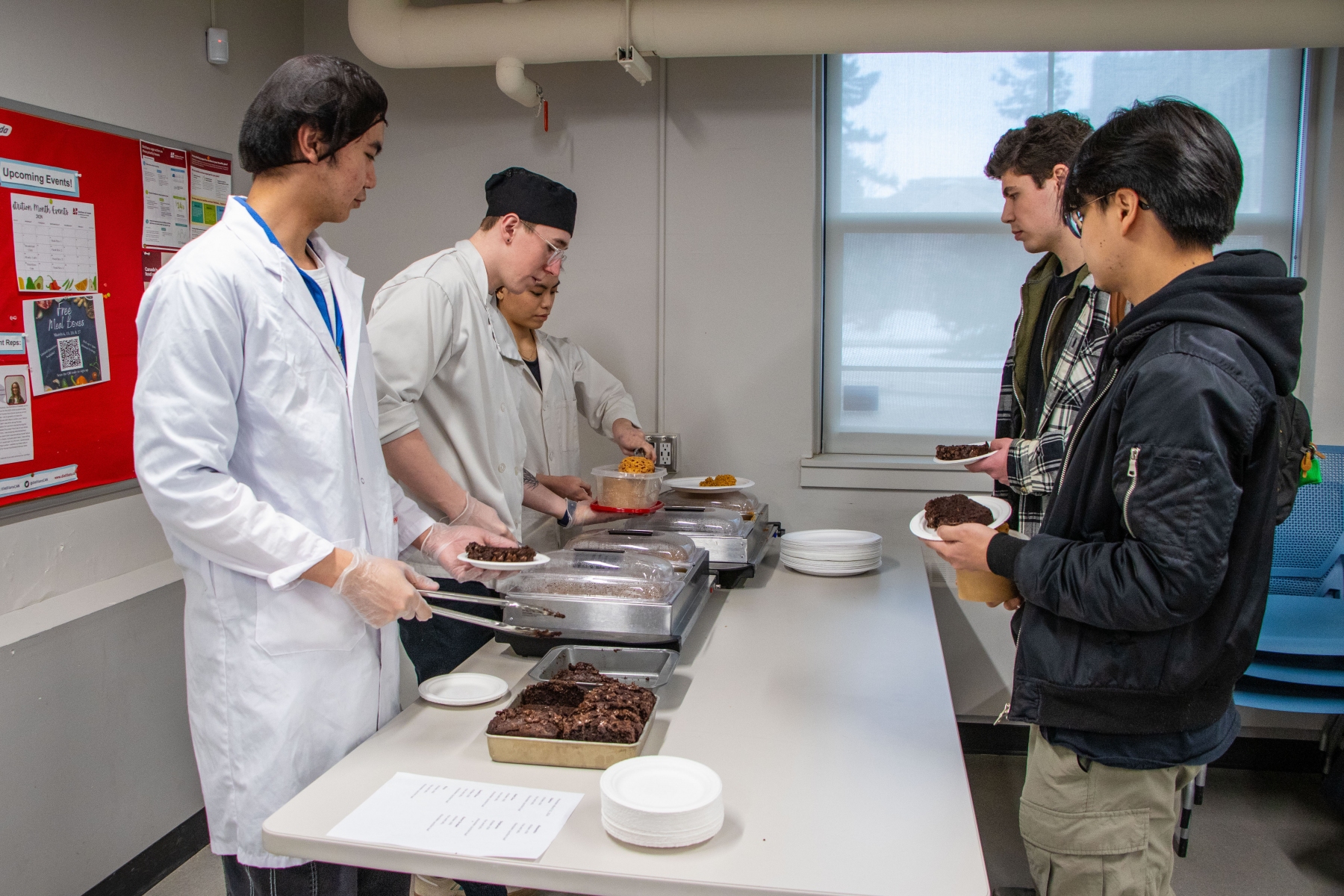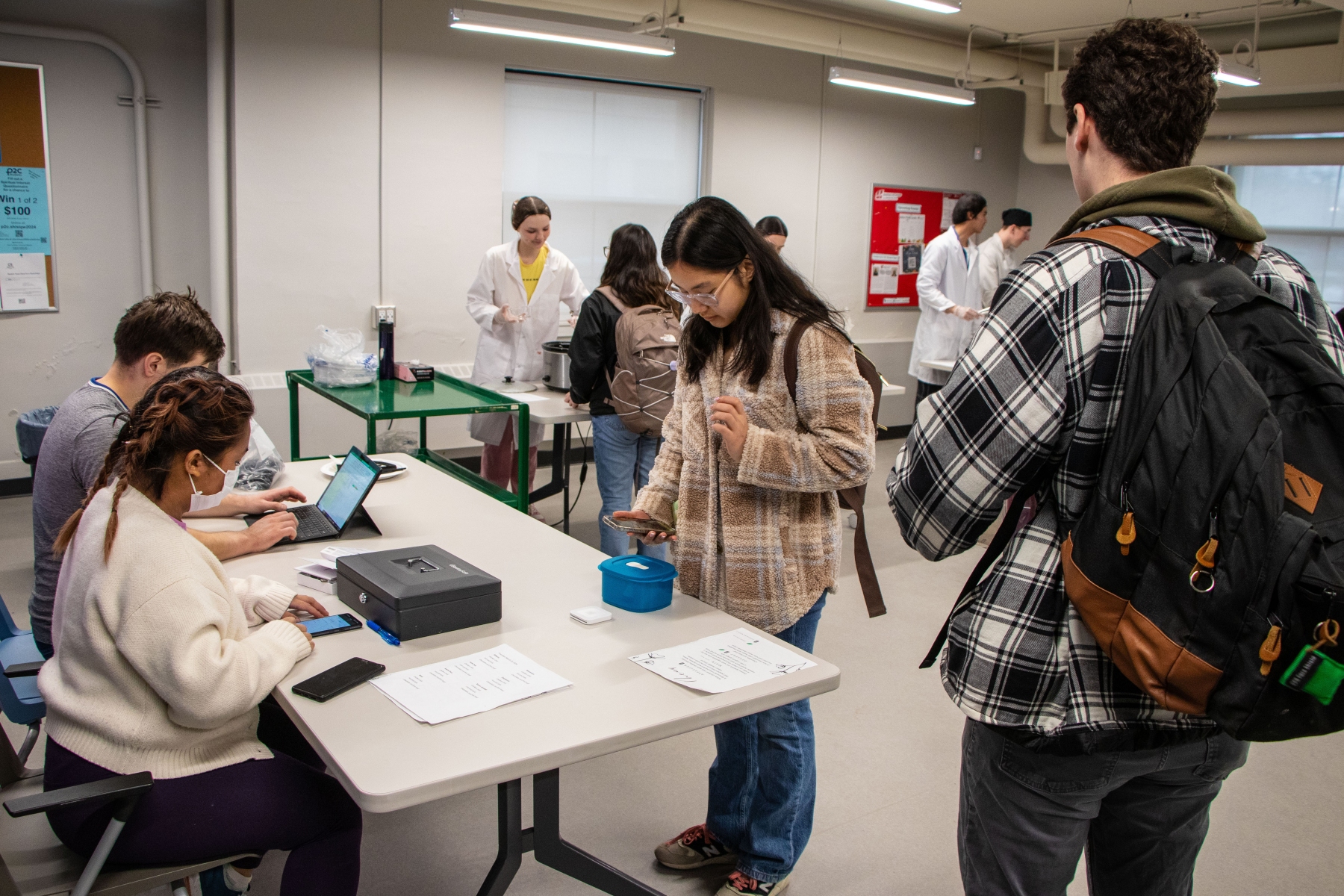
Nutritional Sciences students get a true taste of the real world
Dr. Snehil Dua provides valuable work-integrated learning opportunities
A hot meal at lunchtime is a comforting thing. When creating the lunch is also a work-integrated learning opportunity for students, that’s a recipe for success.
Every Friday from now until April 5 in the Human Ecology lounge, lunches consisting of soup or salad, an entrée and dessert are just $7. It’s a steal of a deal. The menu and all the prep are courtesy of fourth-year Human Nutritional Sciences students in the Quantity Food Production and Management course.
The hot lunch project is one of many ways that Dr. Snehil Dua incorporates Experiential Learning (EL) into her teaching. She is always looking for ways to help her students prepare for the dynamic demands of the food industry.
“The students simulate real-world scenarios by organizing the lunch sales,” says Dua, who is an instructor in the Department of Food and Human Nutritional Sciences. “Through role-playing as managers and workers, they gain firsthand experience in menu planning, recipe standardization, inventory management, food preparation and sales.”
Dua understands the value of integrating real-life learning at all course levels. “In lower-level courses, I incorporate decision-making activities and case-study discussions, gradually progressing to more hands-on experiences such as laboratory work,” she says.
In advanced courses, students benefit from a range of EL opportunities.
- Students write a comprehensive business plan for a for-profit or non-profit food service, where they consider all aspects of the business, including location, menu, human resources, break-even analysis and profitability, waste management, sustainability, and quality control. “The consistently impressive quality of the business plans students present surpasses my expectations,” she says.
- Guest speaker Randy Dagasdas, CEO of Me-Dian Credit Union, visits classes to share details on securing loans for small businesses and navigating the financial landscape.
- Students engage with local businesses to work on projects tailored to their course objectives with an entrepreneurial focus. “This fosters meaningful connections with potential employers and cultivates an entrepreneurial mindset.”
The feedback from businesses and students regarding EL initiatives has been overwhelmingly positive, with several students securing job offers due to their outstanding performance, says Dua. “It’s incredibly rewarding to receive emails from students, even a year later, expressing gratitude for the valuable skills gained through WIL experiences, particularly when navigating the job market.”
Dua’s commitment to EL was recognized in 2023, when graduating student LaDawn Duerksen honoured her at the Students’ Teacher Recognition Reception. “Dr. Dua’s goal is simply to be there for her students and challenge them to learn and be educated in real world practical life learning lessons – not just theory,” Duerksen said at the STRR ceremony.
At UM, we recognize 12 types of EL, including co-operative education, Community-Engaged Learning (CEL), applied research, project-based and entrepreneurship and more. “While we recognize 12 types, there is lots of overlap. The 12 types are not mutually exclusive as evidenced in Dr. Dua’s practice where meaningful experiences and reflection emerge from project-based learning, industry projects and entrepreneurship”, added Janine Carmichael, Faculty Specialist, Entrepreneurship with The Centre for the Advancement of Teaching and Learning.
Are there challenges to having this high level of commitment to experiential learning? Yes, and Dua is grateful for those in the department who support and encourage her.
Are these challenges worth it? A bigger yes. “Every term is a new challenge, another small success, and a valuable learning opportunity. I love doing what I do, and students’ enthusiasm fuels me.”
Get entrepreneurial at UM
For more information about how to teach through entrepreneurship, get in touch with Janine Carmichael, Faculty Specialist: Entrepreneurship.
The Office of Experiential Learning is also available to support faculty and instructors to embed EL in courses and programs. Join the Experiential Learning Community of Practice to connect with others at UM who are engaged in this kind of teaching and learning.







